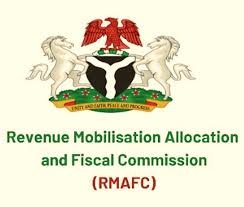The Revenue Mobilization Allocation and Fiscal Commission (RMAFC) has announced fresh steps to resolve long-standing disputes over oil and gas wells among producing states in the Niger Delta. The move is aimed at ensuring fairness in the distribution of the 13 percent derivation fund while preserving the integrity of the Federation Account.
RMAFC Chairman, Dr. Mohammed Shehu, disclosed this in Asaba during the inauguration of the Inter-Agency Technical Committee on the verification of disputed and newly drilled oil and gas fields. He explained that the committee, working in collaboration with key federal agencies, would provide accurate mapping and coordinate verification of wells across contested boundaries.
According to him, the team includes representatives from RMAFC, the Nigerian Upstream Petroleum Regulatory Commission, the Office of the Surveyor General of the Federation, and the National Boundary Commission. Their mandate is to physically verify disputed oil and gas locations, including the Aneize field in OML 143, as well as the Eyine and Ameshi fields, which have sparked contention between states such as Anambra, Imo, and Delta.
Read also:
- Oil Theft Crisis: FG unveils 37 new evacuation routes to curb illegal activities in Niger Delta
- Gov. Oborevwori’s aide says Delta most peaceful state for oil, gas business in Nigeria
- Army dismantle 16 illegal oil refining sites in Niger Delta, arrest 23 oil thieves
Dr. Shehu said the initiative followed repeated petitions by governors of affected states over rightful ownership of assets drilled since 2017. He emphasized that the committee would extend its work to Rivers, Akwa Ibom, Bayelsa, Ondo, and Edo, where similar disputes have been recorded. The exercise, he noted, will rely on geospatial data from the petroleum regulator, validated and observed by surveyor-generals of the concerned states.
Highlighting the significance of the project, Shehu stressed that plotting coordinates of oil wells is a proactive step to end boundary disputes and guarantee equitable disbursement of derivation funds. He said the measure would also promote transparency and reduce tensions that often arise from resource allocation.
“This decision reflects our commitment to fairness, accuracy, and peace among oil-producing states,” he stated. “By promoting transparency, we are laying a foundation for sustainable exploration, investment, and development in the Niger Delta.”
The RMAFC boss further cited Paragraph 32 (a), Part 1 of the Third Schedule to the 1999 Constitution (as amended), which empowers the commission to monitor accruals into and disbursements of revenue from the Federation Account. He assured stakeholders that the verification exercise will set a new standard in resolving oil-related disputes in Nigeria.






